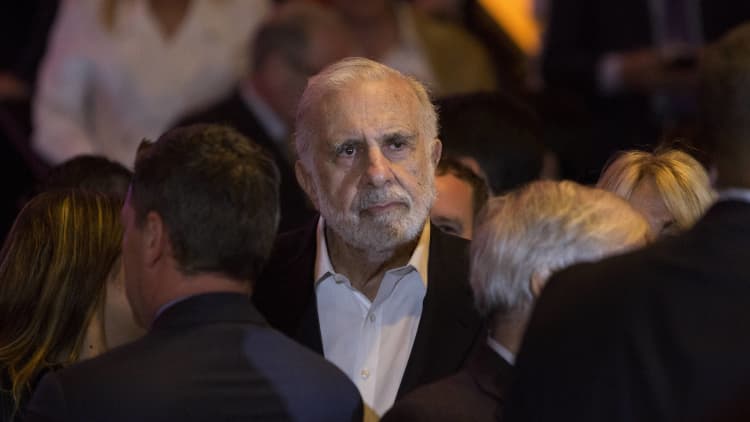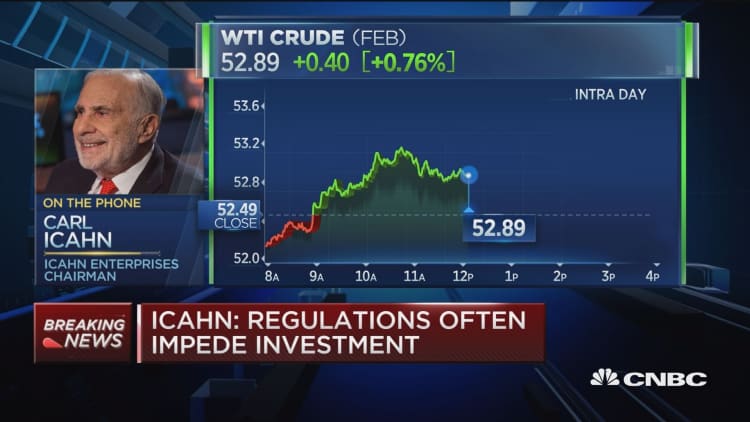
Billionaire investor Carl Icahn has been subpoenaed by federal prosecutors in New York over his role advising President Donald Trump on a federal biofuels program.
Icahn, formerly a special advisor to Trump on regulations, had sought changes to the Renewable Fuel Standard, a program that requires fuel refiners to blend renewable biofuels like corn-based ethanol into gasoline and diesel. Those changes would have benefited CVR Energy, in which Icahn Associates holds an 82 percent stake.
Icahn's unofficial position as a regulatory advisor to Trump drew criticism from conflicts-of-interest watchdogs immediately after it was announced last year. In May, eight Democratic senators asked U.S. regulators to investigate whether Icahn violated insider trading laws.
Icahn, who has argued he was acting in the interest of American energy security, stepped down from the advisory role in August. Icahn claimed the blending requirements threatened to put small refiners out of business and jeopardize the nation's ability to produce fuel.

Icahn Enterprises disclosed the subpoena, issued by the U.S. Attorney's Office for the Southern District of New York, in a quarterly report.
"The U.S. Attorney's office for the Southern District of New York recently contacted Icahn Enterprises L.P. seeking production of information pertaining to our and Mr. Icahn's activities relating to the Renewable Fuels Standard and Mr. Icahn's role as an advisor to the President," the disclosure says.
The company said it is cooperating with the office and providing the information requested.
"The U.S. Attorney's office has not made any claims or allegations against us or Mr. Icahn," Icahn Enterprises said.
The Environmental Protection Agency, the U.S. bureau that oversees the Renewable Fuel Standard, last month said it would not pursue several changes to the program that would ease financial burdens for CVR Energy and other small refiners.
Under the Renewable Fuel Standard, refiners who blend biofuels like ethanol into gasoline generate credits called Renewable Identification Numbers, known as RINs. Smaller refiners like CVR Refining that do not blend ethanol must buy those RINs in order to meet their obligation under the program.
CVR Refining is a limited partnership controlled by CVR Energy.
Icahn had lobbied for the EPA to shift the obligation to buy credits away from refiners and onto fuel blenders. Analysts told CNBC that CVR Refining appeared to be putting off buying RINs on the view that prices would fall as policy changed. Icahn himself suggested the company was not buying RINs.
That plan appeared to backfire, leaving CVR with a large uncovered commitment to buy RINs, which have rallied throughout much of the year.
Last week, CVR Refining estimated its RINs expense at $235 million to $265 million in 2017. Its total uncommitted biofuel blending cost at the end of the third quarter was $127 million, CVR Chief Financial Officer Susan Ball said during an earnings conference call.
During that call, outgoing CVR CEO Jack Lipinski lambasted the Trump administration for declining to alter the program. He said the administration had "caved" to biofuel interests and "failed to drain the swamp as promised."


